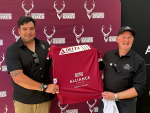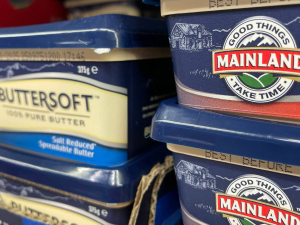Alliance Group has turned a corner on a challenging two years following a comprehensive re-set over the past 18 months and is forecasting a return to profitability, farmer-shareholders were told at the company’s annual meeting in Gore today.
“We are disappointed with the financial result and the company is determined to do better,” said Alliance chair Mark Wynne.
“In response, Alliance has taken decisive steps to re-set the business and position the company for future success after a tough period for the global red meat sector, in particular for lamb, our largest product group.
“We have implemented significant changes to strengthen the company’s financial resilience, improve operational efficiency, optimise pricing and product mix across geographies and enhance our offering to farmer-shareholders.
“We’ve worked hard to make Alliance a leaner, more agile business that is well-placed to ride the anticipated upturn in global red meat pricing.
“While the past two years have been exceptionally tough, we’re seeing encouraging signs of recovery, and we are forecasting a return to profitability in the current financial year.”
Key initiatives in Alliance’s re-set include rationalising processing capacity, reducing costs, investing in technology such as a new Enterprise Resource Planning (ERP) project to modernise operations and implementing a business model to support the creation and extraction of value from the company’s global markets.
The company has also focused on building stronger partnerships with farmer-shareholders by introducing a more equitable livestock schedule and a reshaped loyalty programme.
At the Annual Meeting, Alliance announced that processing sheet livestock deductions and the issuing of new shares have been paused.
“The board's preference is for Alliance to remain a 100 per cent farmer-owned co-operative. However, raising the desired capital from farmer-shareholders now looks extremely difficult. We continue to explore other shareholder funding options,” said Wynne.
“Once we are in a better position to provide more clarity around the funding options, the board will review the decision around deductions. Many of our shareholders will welcome this move as it further softens the cash flow impact on-farm.
“We are early in the external capital raise process being led by Craigs Investment Partners. Initial signs are encouraging, with both offshore and onshore interest. How this plays out is too early to say.”
Willie Wiese, chief executive of Alliance, said the re-set has delivered tangible improvements for both farmers and customers.
“We’ve rolled out advanced technologies like our Meat Eating Quality programme, powered by artificial intelligence and machine learning, to provide real-time insights into livestock quality. This is helping our farmers make informed decisions to improve on-farm returns while delivering consistent, high-quality products to our customers.
“Alliance has also diversified its market portfolio by strengthening its presence in other markets. While reducing our reliance on China, Alliance remains committed to maintaining its strong partnership with our in-market partner Grand Farm.
“Globally, beef has shown solid price growth driven by the drought in the United States. Lamb, our largest product category, appears to have finally bounced off the bottom of the price cycle, but it still has a long way to go to climb back up to five-year average pricing.”
Alliance is now better equipped to capture greater market value and deliver stronger returns to farmer-shareholders, said Wiese.
“With a leaner structure, modernised systems, and a clear strategic focus, we’re confident we can navigate global market complexities and deliver long-term value to our farmer-shareholders.”
The successful candidates to fill two vacancies on the board of Alliance Group are Matt Iremonger and Gray Baldwin.



















